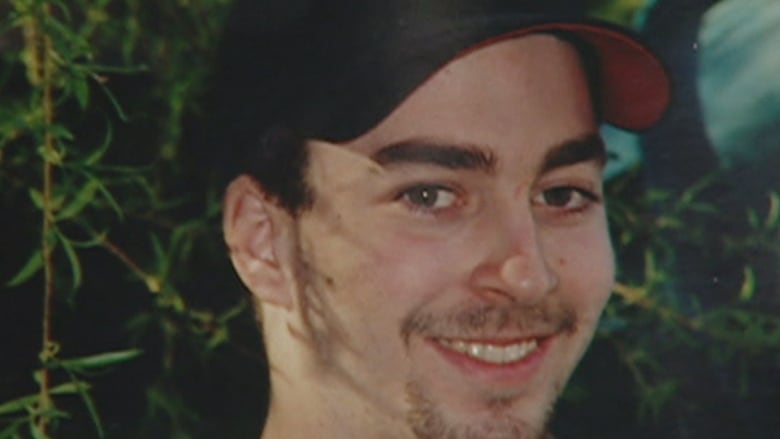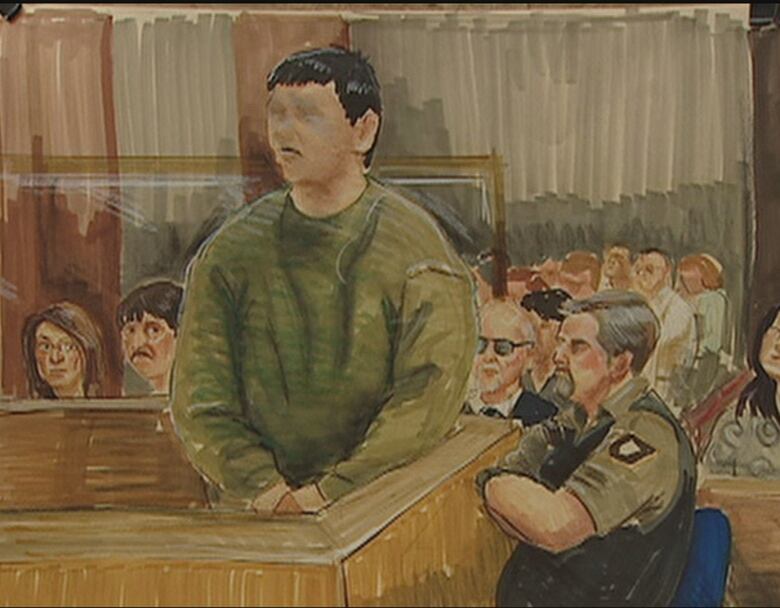Grant De Patie's killer, Darnell Pratt, makes my blood boil, says bereaved dad
Grant De Patie was dragged to death in 2005 when he tried to stop Pratt stealing $12 worth of gasoline

The father of Grant De Patie, a young B.C. man who was dragged to death in a horrifying gas-and-dash, is angry that a decade later,his son's convicted killer is still in trouble with the law.
"My blood boiled in my veins," said Doug De Patie, after learning DarnellPratt had been handed only one day in jail for his latest offence theftunder $5,000 and obstructing a police officer.
"It was a spit in Grant's face, a slap in the face for Grant and a punch in the stomach for us."
Gas station attendant Grant De Patie, 24, was killed when he tried to stop 16-year-oldDarnell Pratt stealing $12 worthof gasin Maple Ridge, B.C. in 2005.
In a case that shocked the province and led to new regulations protecting late-night workers, it emerged Prattdragged DePatieseven kilometresunder astolen car, leaving a bloody trail behind him as he fled the scene.

Pratt was convicted of manslaughter in the death of De Patie andwas sentenced to nine years in prison in 2005, butwas eventually released in 2012, after two previous attempts at parole failed.
Last week, Pratt pleaded guiltyto charges including theft under $5,000 and obstructing a police officer, afterstealing a man's iPod and blanket in Surrey, B.C. and reportedly giving a false name to police in Dec. 2014.
Pratt was sentenced to one day in jail along with one year of probation and a $200 victim surcharge, after being credited with 11 days for time served.
"They let him slip through their fingers this time. What makes you think he's going to comply with his probationary orders?" askedDoug De Patie.
Previous parole violations
Pratt has a long history of problems with the law since De Patie's death.
After serving five years for killing De Patie, Pratt was first given statutory release in June 2010 but it was revoked two days later when he failed to show up for curfew.
Pratt was then released a second time in Nov. 2011, but was re-arrested after hewalked away from his Victoria halfway houseaweek later.

He was released again in May 2012. Pratt will remain on probation for a year following hisshort imprisonment for the 2014 theft.
Mike Farnworth, the NDP MLA for Port Coquitlam, B.C.,says the province needs to push the Crown.
"To send a strong message that in cases like this, particularly when you're dealing with repeat offenders, that we want to push for more consequences;that it's not a case of a day in jail and then you're out is not good enough," said Farnworth.
But the Crown says Pratt's one-day sentence is in the normal range for his latest crimes.
"Ultimately, it is the responsibility of the presiding judge to determine sentencing for any individual convicted of a crime," said the Justice Ministry in a statement.
The statement also notes this must be a very difficult time for the De Patie family.
Grant's Law legacy

The new law requireddrivers topay for their gas before they pump itandlate-night workers to either be physically separated from the public with a locked door or to work in pairs.
Butthe regulation was changed in 2012, giving employers a third option: requiring time lock safes for cash, surveillance systems, personal emergency transmitters and regular security audits.












_(720p).jpg)


 OFFICIAL HD MUSIC VIDEO.jpg)
.jpg)








































































































